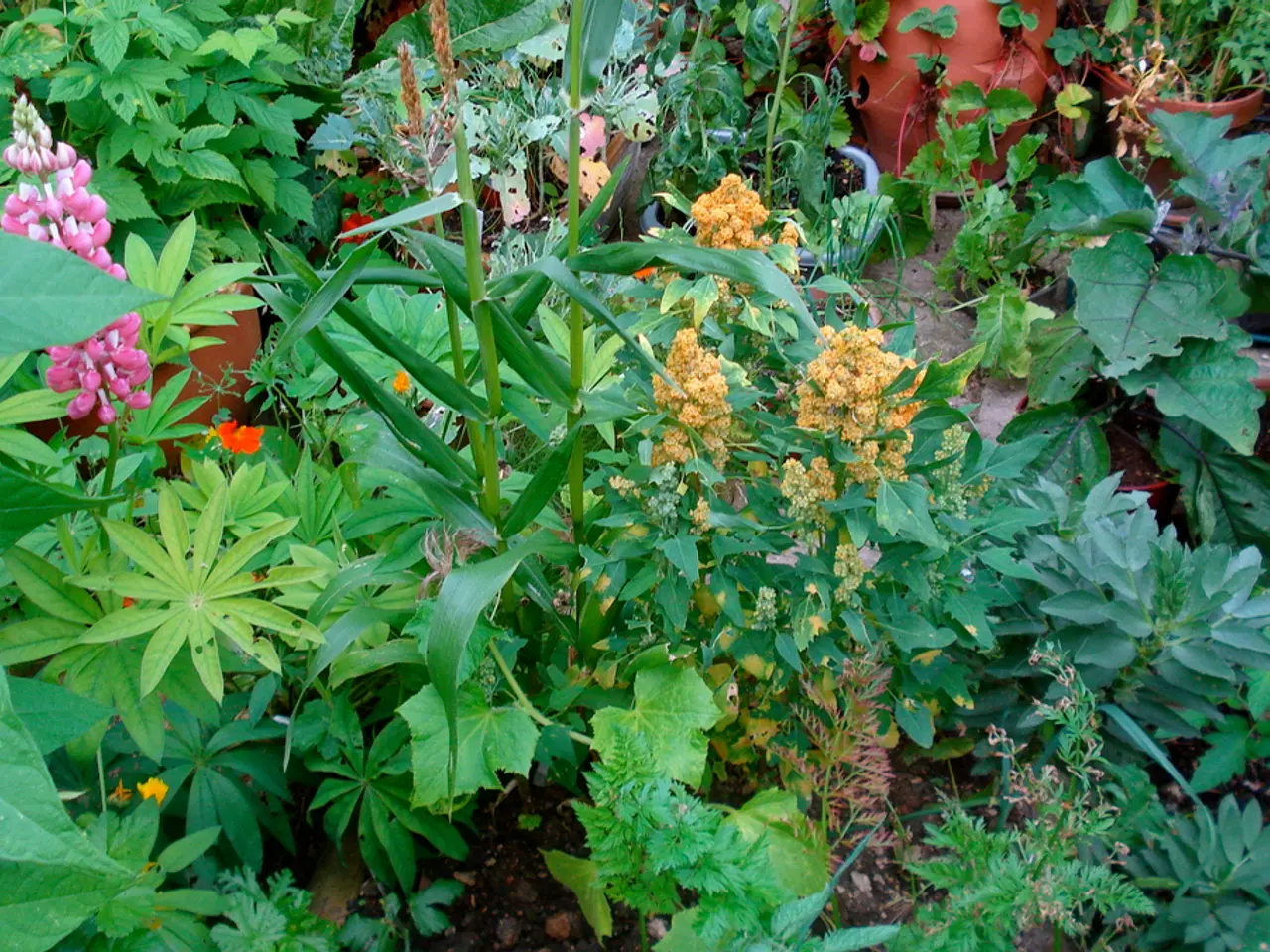Volcanic Soil Cultivation: Ideal Plants for Sowing and Cultivation
In various parts of the world, volcanic soil has proven to be a fertile ground for a diverse range of crops, offering unique benefits that contribute to their growth and flavour.
One such region is Naples, Italy, where tomatoes flourish in the volcanic soil. The low density, stable, and porous structure of this soil provides an ideal environment for these crops, allowing for optimal water retention and root development.
Similarly, grape vines are often cultivated in high-altitude volcanic soils, particularly in Ecuador and Colombia, where the Passiflora mixta, or banana passion flower, also thrives. This exotic tropical flower, known for its trilobed, serrated leaves and pollination by hummingbirds, grows near volcanic mountains.
Tea is another crop that benefits from volcanic soil. In Kagoshima, Japan, tea leaves are grown on volcanic soil due to the nearby Sakurajima, a stratovolcano. Despite the occasional need to clean volcanic ash off the tea leaves, the ash provides essential minerals to the soil, enriching it continuously.
The benefits of volcanic soil extend to coffee cultivation as well. Volcanic soils, such as andisol found in Hawaii, are rich in essential minerals, providing the necessary nutrients for coffee plants to thrive. This nutrient-dense soil enhances flavour and plant resilience.
Moreover, volcanic soils have excellent water-holding capacity, maintaining consistent moisture levels, and reducing the need for excessive irrigation. The ongoing enrichment of the soil with minerals contributes to complex and balanced coffee flavours, as the plants absorb these minerals over time.
Areas with volcanic soil often have unique microclimates, which are ideal for coffee cultivation. These microclimates provide high altitudes and cooler temperatures, promoting slower maturation and more complex flavour profiles.
Furthermore, the dry, cool climates associated with some volcanic regions can reduce disease risks, making it easier for farmers to manage diseases and maintain healthier crops.
Volcanic soil's drought resistance and water retention capabilities are also noteworthy. For instance, the Mount Merapi project in Indonesia faced a water scarcity issue following an eruption, but a rainwater collection system and water transportation by scooter were implemented to overcome this challenge.
In addition to coffee plants, grape vines, tomatoes, kiwifruit, and a variety of other crops, such as maize, sorghum, potatoes, pyrethrum, peas, and more, can be grown successfully in volcanic soil.
Notably, kiwifruit is grown in the volcanic soils of New Zealand, while tea is cultivated on high-altitude volcanic soils in Java and is highly acidic. Some fruits and vegetables, like blueberries, plums, strawberries, artichokes, red onions, spinach, and broccoli, grown in volcanic soil, are high in polyphenols.
Even exotic flowers like the bird of paradise from South Africa and the silverswords from the Haleakala volcano in Maui thrive in volcanic soil.
In conclusion, volcanic soil offers numerous advantages for agriculture, supporting the growth of a diverse range of crops and contributing to their unique flavours and health benefits.
The unique benefits of volcanic soil aren't limited to crops; it also provides an ideal environment for the growth of the Passiflora mixta, or banana passion flower, near volcanic mountains. From home-and-garden enthusiasts to professional farmers, one can cultivate a variety of plants such as grape vines, tomatoes, kiwifruit, and even exotic flowers like the bird of paradise in this fertile ground, enhancing not only the lifestyle but also the overall health and flavour of the produce.




